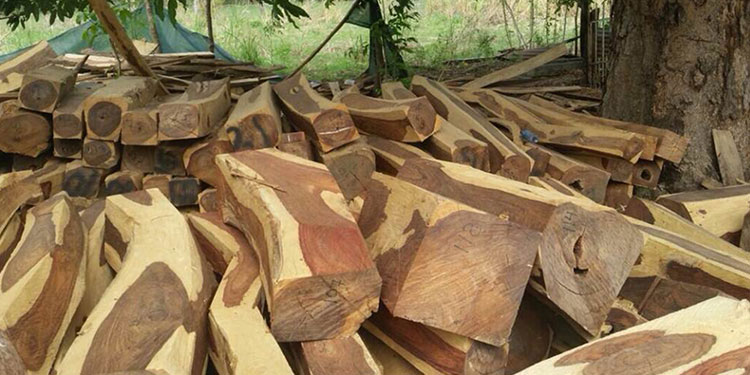
According to speakers at a high-level segment of the International Tropical Timber Council’s inaugural Trade and Markets Day, a massive restoration of degraded forest landscapes in Africa, combined with strong incentives for private-sector investment, could help lead economic development while meeting a looming timber supply deficit.
During the segment, ITTO Executive Director Dr. Gerhard Dieterle stated that Africa’s growing population, combined with ongoing forest degradation, meant that there was a significant risk of a downward spiral in which people put increasing pressure on increasingly scarce forests, leading to ongoing land degradation and a variety of other serious consequences.
Optimizing the economic benefits of a significant forest landscape restoration program, he said, necessitates sustainable and legal supply chains, but developing these is a major undertaking that necessitates capacity building among many stakeholders, particularly small-scale producers, along supply chains.
Jules Doret Ndongo, Cameroon’s Minister of Forests and Wildlife, stated that his government was establishing a national forest plantations initiative to build a new forest economy based on plantation-grown wood. This would need a significant expenditure.
According to Dieudonne Sita, Director of Forests at the Congo’s Ministry of Forest Economy, a key challenge for any potential investment in forests, wood processing, and legal supply chains, particularly smallholders, is a lack of access to capital.
Government initiatives in certain countries, such as Benin and Togo, promote private-sector involvement in forestry, although much more is plainly required.
There was a need for governments to develop large incentive packages to encourage the forest sector, as had been done in other countries, particularly Asia. Panelists asked ITTO to maintain its support for initiatives to enhance investments in forest plantation expansion, value addition, and legal and sustainable supply chains, particularly via capacity building.
According to one of the speakers at this year’s Annual Market Discussion, which took place as part of the Trade and Markets Day during the 55th Session of the International Tropical Timber Council, Africa’s governments and the private sector must jointly take ownership of the challenge of developing a value-added wood industry, focus on opportunities, and stop being daunted by problems.
‘Africa could take inspiration from the success of other areas, but instead of replicating what the victors did,’ said Mafa Chipeta, who spoke provocatively at the Annual Market Discussion.
‘Africa’s growth has been poor in many sectors, and a mentality of blaming others rather than seeking own answers has taken hold,’ he added. Private investment failure in Africa is almost probably attributable to a failure of government policy, commitment, and discipline.
Ayite Gaba, a young entrepreneur in Togo’s forest sector, stated that the country’s teak processing industry faced two major challenges: an overdependence on buyers from India, which meant that local processors needed to buy their logs at international prices, which few could afford; and the low quality of locally produced teak furniture, largely due to the industry’s reliance on low-quality teak logs. Mr. Gaba presented four proposals to remedy the problem, including that the government gives incentives to assist Togolese to build profitable teak enterprises capable of competing on a global scale.
According to Mr. Sools, the wood sector is mostly focused on natural forest timber, and the major players have not made a significant shift to plantation timber. Furthermore, the majority of teak on the market is very young (12–15 years old), but there is resource pressure, resulting in the removal of small-sized trees and, as a result, poor pricing for producers. This has caused another issue in the industry.
The Trade Advisory Group recommended that the ITTO might play a significant role in removing barriers to the establishment of tree plantations, particularly in the context of ecosystem restoration.
According to the statement, there is already a lot of knowledge in member nations and beyond, but ITTO needs to demonstrate leadership and channel this collective expertise into a viable path ahead.
The Trade Advisory Group proposed that the Council support a worldwide expert meeting on enabling economically successful tropical plantations, or the establishment of an international tropical timber plantations strategy. It asked, “Are we capable of igniting a tree plantation revolution to rescue the climate?”
